Japanese loanwords
Given that katakana was specially created to indicate foreign words, it should come as no surprise that there is an abundance of loanwords in the Japanese language. Many of these Japanese loanwords, or garaigo (外来語), may be used in everyday speech, but they have taken on quite different meanings.
To spare you the confusion the next time you encounter them, we’ve compiled 30 Japanese loanwords that refer to completely different things in their original language.
Check out these articles for more language guides:
1. Mansion (マンション)

Image credit: TrustyPartners
In Japan, the majority of locals live in a mansion. But don’t be mistaken, it doesn’t mean that they are uber-rich. “Manshon” (マンション) is used to refer to an apartment unit in a high–rise building. On the other hand, terms like “apaato” (アパート), or apartment, are commonly used to refer to housing units in 2 to 3 storey buildings.
2. Claim (クレーム)
In English, to “make a claim” would be to assert that something is true or a fact. However, if a Japanese person were to make a complaint after receiving subpar service, they would make a claim (kuremu, クレーム) to the manager of the hotel or restaurant.
3. Front (フロント)

Image credit: Kirill
When you first enter a hotel or ryokan (traditional inn) in Japan, you’ll be greeted by the sight of a front desk. While its Japanese counterpart, “受付” (uketsuke), can be used to refer to reception area or front desks, the English word “front”, or “furonto” (フロント), is more commonly used.
4. Campaign (キャンペーン) / Bargain (バーゲン)
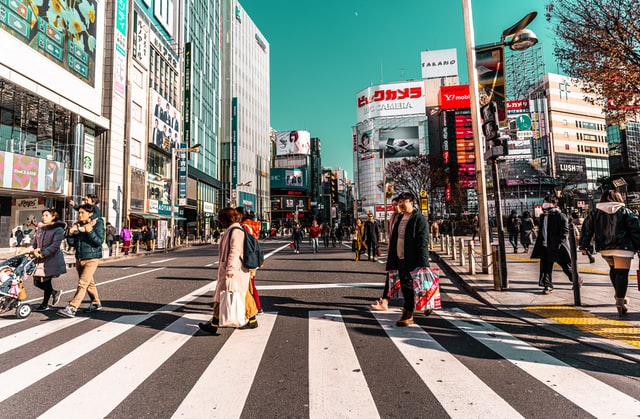
Image credit: Jezael Melgoza
Everyone loves a good deal and the Japanese are no exception. During sale seasons like the start and end of the year, you’ll likely hear words like “campaign” (kyanpeen, キャンペーン) and “bargains” (baagen, バーゲン) being thrown around. The former refers to planned promotions for a limited period of time, while the latter indicates past-season products or merchandise that are sold at a discounted price.
5. Viking (バイキング)

Image credit: Louis Hansel
Instead of brave warriors donning horned helmets, viking (baikingu, バイキング) refers to a buffet in Japan. More than 60 years ago, a Japanese hotel manager travelled to Copenhagen, Denmark. While he was there, he had a smörgåsbord – a type of Scandinavian meal with a variety of dishes served on a table. Impressed with the concept, the manager decided to introduce all-you-can-eat meals to Japan.

Image credit: @asaya_hotel
As “smörgåsbord” was difficult for Japanese natives to pronounce, it was replaced with the catchier “viking”. The Japanese loanword was inspired by The Vikings, a popular movie released in the late 1950s. The dynamic image of a viking feasting also felt fitting for the all-you-can-eat style.
6. Cooler (クーラー)
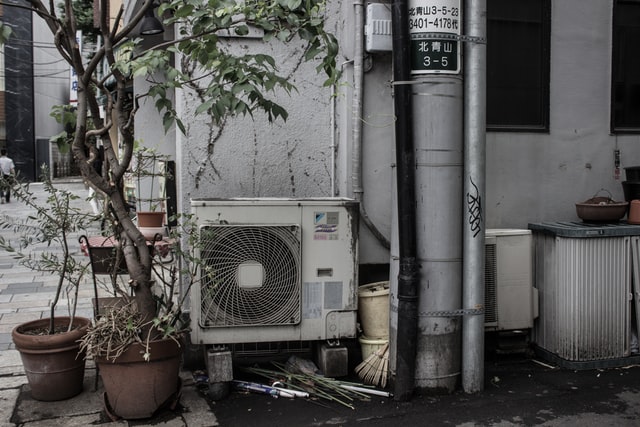
Image credit: Tregg Frank
An indispensable part of Japanese summer, “kuuraa” (cooler, クーラー) refers to air conditioners that help the locals get past unbearably hot and humid months. Keep in mind that it should not be confused with the term “エアコン” (eakon, air con).
Unlike coolers, which only have cooling functions, air cons (eakon) are air conditioning units that can both cool and heat a room, as well as adjust humidity levels and other fun stuff. In other words, a cooler only cools, while an air con can be used all-year round.
7. Tension (テンション)
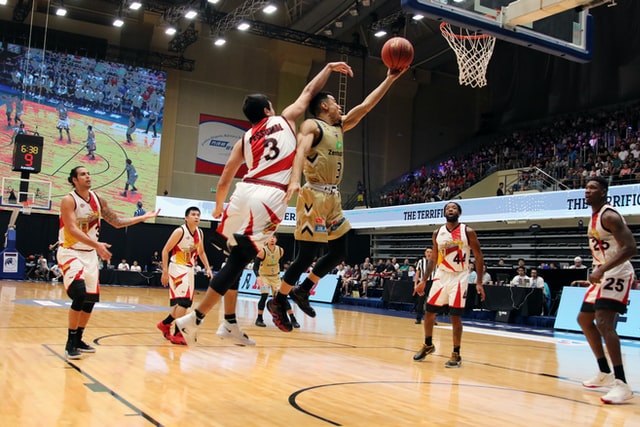
Image credit: Macau Photo Agency
In sports anime like Haikyuu!!, you’ll hear the term “tension” (tenshon, テンション) used frequently. That’s not to say that the series is filled with stressful or anxious moments. Rather, it is used to refer to a state of euphoria and excitement.
Phrases like “ハイテンション” (hai-tenshon, high tension), “テンションが上がる” (tenshon ga agaru), and “テンションが高い” (tenshon ga takai) are used to indicate that the situation or individual is pumped up.
8. Bike (バイク)

Image credit: Christopher Burns
When you hear the word “bike” you’d probably think of a bicycle. However, in Japanese, “baiku” (バイク) means “motorcycle”. To avoid confusion, use “自転車” (jitensha) or its colloquial equivalent, “チャリ” (chari), to refer to bicycles.
9. Print (プリント)

Image credit: Scott Graham
Though “purinto” (プリント) is occasionally used as a verb in Japanese, the loanword has evolved to refer to “handouts”. Materials that are distributed in a classroom setting or during meetings – such as assignments, worksheets, and documents with printed information – count as “purinto” (プリント) in Japanese.
10. Driver (ドライバー)

Image credit: Barn Images
A quick Google search of the Japanese loanword in question may leave you more than confused as the results show thousands of images of hand tools. “Driver” (doraibaa, ドライバー) is an abbreviation of “screwdriver”, so be careful to not mix it up with a person who drives a vehicle.
11. Miss (ミス)
“Misu” (ミス) is a common Japanese-made English word used to indicate that one has made a blunder or mistake. It is said to be a shortened form of “mistake”.
12. Handle (ハンドル)

Image credit: Niklas Garnholz
In English, the word “handle” refers to a myriad of things, from door knobs to the straps you grab onto on a bus so you don’t fall over. But in Japan, the term is more specific – “handoru” (ハンドル) refers to steering wheels or bicycle handlebars.
13. Cup (コップ/ カップ)

Image credit: Cub & Pup Studio
Due to subtle differences in nuances, the terms used to denote drinking cups can get confusing. Both “koppu” (コップ) and “kappu” (カップ) indicate drinking vessels. The difference is that the former is an umbrella term used to describe all kinds of cups, while the latter refers specifically to cups with handles. Keep in mind that traditional Japanese tea cups used for drinking matcha are called “chawan” (茶碗).
14. Jet coaster (ジェットコースター)

Image credit: Anne Nygård
Arguably the most popular attraction at any theme park, roller coasters are a must for thrill seekers out there. In Japan, these hair–raising rides are called “jetto koosutaa” (ジェットコースター) possibly because they seem to travel as fast as an aircraft propelled by jet engines.
15. Cunning (カンニング)

Image credit: Green Chameleon
The meaning of “kanningu” (カンニング) in Japanese does not deviate much from its equivalent in English, though it is used for very specific situations. It is used as a noun to mean “cheating during test”, rather than an adjective. The Japanese equivalents for “cunning” – as in “sly” – are “ずるい” (zurui) and “狡猾” (kōkatsu).
The word is said to have been popularised during the Meiji Period, when it was used as a euphemism by students to avoid getting caught while cheating.
16. Charge (チャージ)
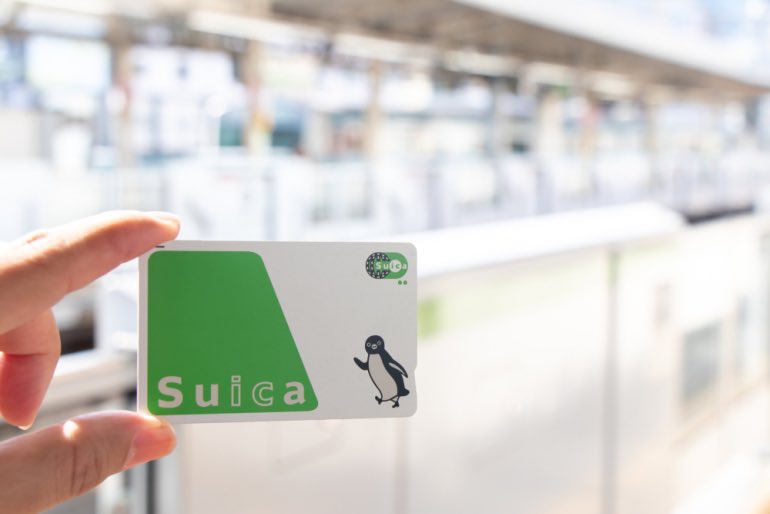
Image credit: @natyuraru_kwge2
If you’ve ever tried to transfer money to your suica card (reloadable transportation cards) using the machines at train stations in Japan, you’d have come across a “charge” button on the display. To “chaaji” (チャージ) means to reload prepaid cards – typically transportation cards like suica or icoca.
In a pinch, you can also visit the nearest convenience store to “charge” your card. The process is relatively straightforward – just approach the cashier and utter the phrase “スイカのチャージお願いします” (suica no chaaji onegaishimasu), as well as the amount you would like to top up.
17. Arbeit (アルバイト)
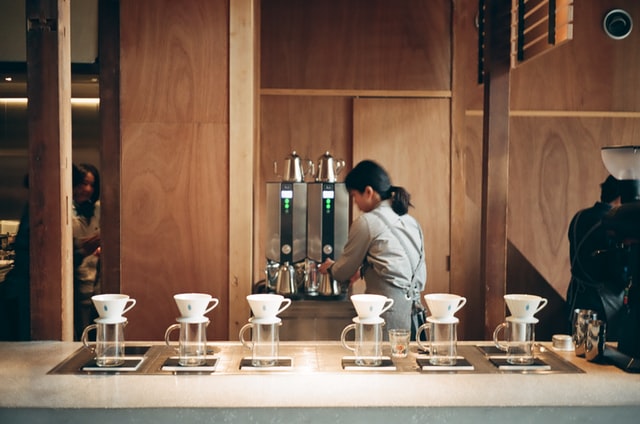
Image credit: seongmi Hong
Arbeit is a German word which means “work” or “labour”, but it has evolved to mean something more specific in the Japanese language. When referring to part-time jobs, natives will use the term “arubaito” (アルバイト) or its shortened and more colloquial form, “baito” (バイト).
18. Fight (ファイト)
When a Japanese shouts “faito” (ファイト), don’t be alarmed as they are not trying to pick a fight. The term is used as a form of encouragement – similar to “ganbatte” (頑張って, “all the best”) – to cheer you on and get you fired up.
19. Golden hour (ゴールデンアワー)
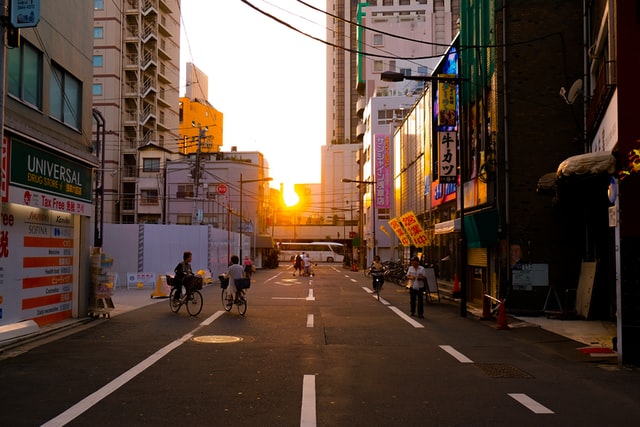
Image credit: Francois Hoang
Photography buffs will know that the golden hour is the optimal time to get the perfect shot. But in Japanese, the phrase means something entirely different.
“Gooruden awaa” (ゴールデンアワー), also known as “golden time” (gooruden taimu, ゴールデンタイム), refers to the prime time in Japanese television. It runs from 7PM to 10PM and programmes broadcasted during this window are likely to enjoy high ratings.
20. Moody (ムーディ)

Image credit: Brennan Burling
The term “moodi” (ムーディ) is given a positive spin in Japanese, as opposed to its original meaning of gloominess or melancholy. If you chance upon a dimly lit restaurant with soft ambient music, use the adjective “moodi” to describe the atmosphere.
21. Gal (ギャル)

Image credit: @usagalxoxo
“Gal” is an English slang used to refer to a girl or woman. However, in Japan, “gyaru” (ギャル) was a popular term coined to describe a fashion subculture that was all the rage in the early 2000s.
Inspired by American teenage culture back then, young girls in Japan would tan their skin, heavily bleach their hair, wear dramatic makeup and have elaborate manicures. The trend has since fallen out of fashion, but the style is still well known today.
22. Snack bars (スナックバー)
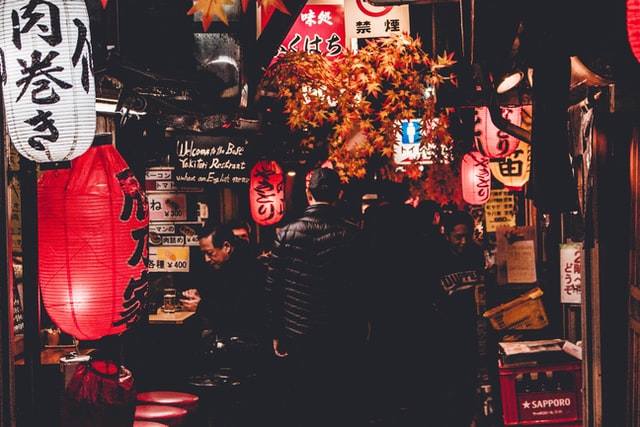
Image credit: Alexandre Chambon
Unlike what the name suggests, snack bars aren’t places with heaps of moreish finger food. “Sunakku baa” (スナックバー), or “sunakku” (スナック) for short, refers to small old school drinking establishments found in Japan.
Typically cosy with a few counter seats, snack bars are run by a mama-san (a woman managing the place). The mama-san would tend to her male clients by socialising with them, mixing drinks and lighting their cigarettes.
23. Revenge (リベンジ)

Image credit: @reiko_t.yama
Rather than implying something sinister, the meaning of “ribenji” (リベンジ) in the Japanese context is closer to challenging something after a failed attempt.
Failed to reach the summit of Mount Fuji this summer? Imagine yourself as the protagonist of a shōnen anime series – hype yourself up by declaring “I will take revenge” (またリベンジする, mata ribenji suru) and try again next year.
24. Sabotage (サボタージュ)
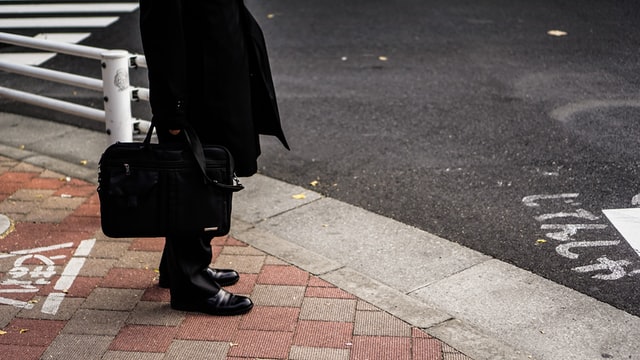
Image credit: Fikri Rasyid
According to Lexico, to sabotage is to purposely “destroy, damage or obstruct” something. While it doesn’t mean anything nearly as dramatic in Japanese, the way it’s used also has negative connotations. The shortened form, “saboru” (サボる), is a verb that refers to playing truant or skipping work.
25. Skeleton (スケルトン)
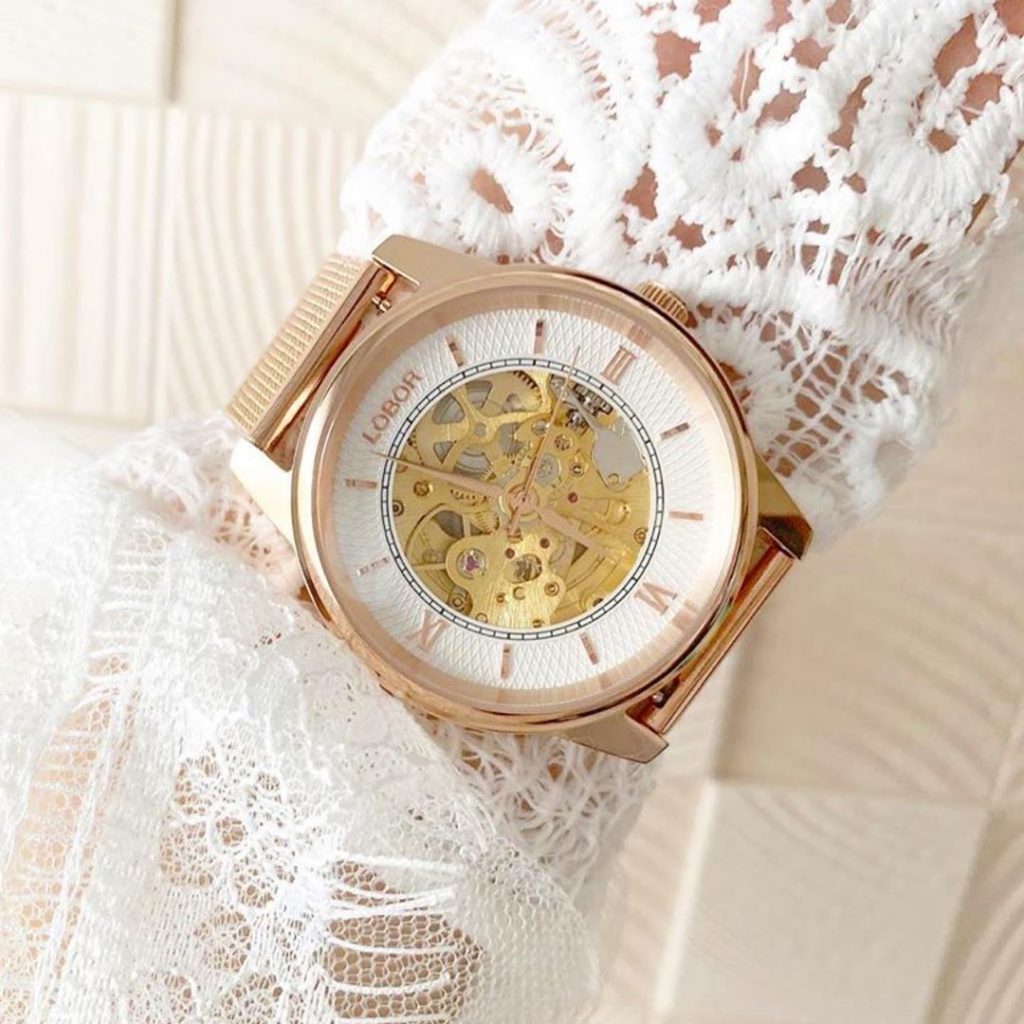
Image credit: @loborjapan
“Sukeruton” (スケルトン) is used to imply transparency or translucency, specifically for devices – like watches with gears showing through the face – with their inner workings revealed.
26. Feminist (フェミニスト)
In this day and age, there can be a myriad of definitions when it comes to the word “feminist”. But in Japan, referring to a man as a feminist (feminisuto, フェミニスト) can simply mean that he’s gentlemanly and treats women kindly.
27. Smart (スマート)
Not be confused with one’s intellect or sharp fashion sense, in Japan, “sumaato” (スマート) is a common adjective to describe someone’s physique. To be exact, the word describes someone with a slim and slender appearance.
28. Wet (ウェット)
If you’re someone who tends to tear up at emotional scenes in dramas, chances are, you would be called a wet (wetto, ウェット) person in Japan. The term refers to a person who is sentimental or tender-hearted, while its antonym, “dry” (dorai, ドライ), implies that someone is dispassionate.
29. Mania (マニア)
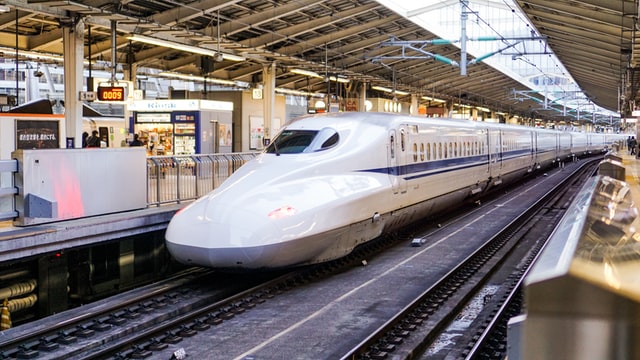
Image credit: Fikri Rasyid
While the word “mania” refers to a form of psychological condition in English, it’s evolved to refer to someone who’s enthusiastic about a certain subject. A car enthusiast would be called “kaa mania” (カーマニア), while train buffs are dubbed “tetsudō mania” (鉄道マニア).
The loanword is said to date back to as early as the Meiji Period, when the term “korekuto mania” (コレクトマニア) was first used to describe enthusiastic collectors.
30. Cider (サイダー)
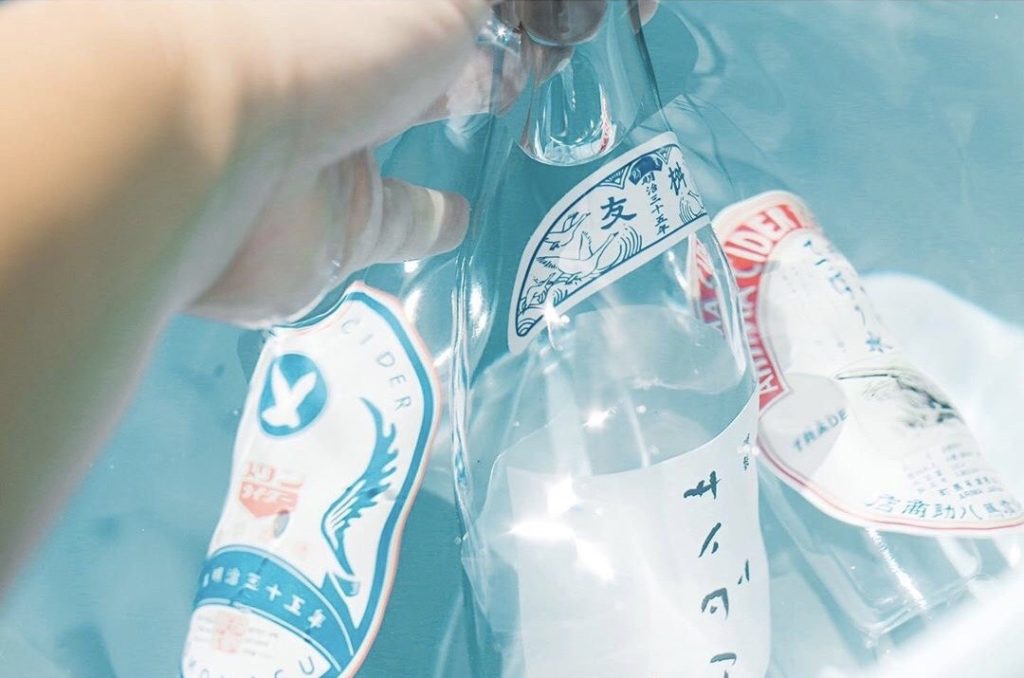
Image adapted from: @shimophotos
Outside of Japan, cider may refer to a type of alcoholic beverage made from fermented fruit. But in the Land of the Rising Sun, “saidaa” (サイダー) is a type of carbonated soft drink, with the most famous brand being Mitsuya Cider.
First created and sold in 1884, cider is essentially a sparkling drink with citrus flavour. Nowadays, you can find cider in a ton of flavours ranging from grape to peach.
Japanese loanwords
Memorising new vocabulary is the bane of many Japanese learners’ existence. But chances are, you already know the meaning of these words in their original language. Now, you’d just have to embrace these new definitions and you’ll have a plethora of new Japanese words at your disposal. Go forth and conquer these Japanese loanwords, faito!
For more interesting articles about Japan, check these out:
- Japanese phrases for shopping
- Basic Japanese phrases to use when dining out
- Ingenious Japanese stationery items to help you master the language
- Japanese language games
- Everyday mysteries in Japan
Cover image adapted from (clockwise from top left): @reiko_t.yama, @natyuraru_kwge2, TrustyPartners and @asaya_hotel

Drop us your email so you won't miss the latest news.






